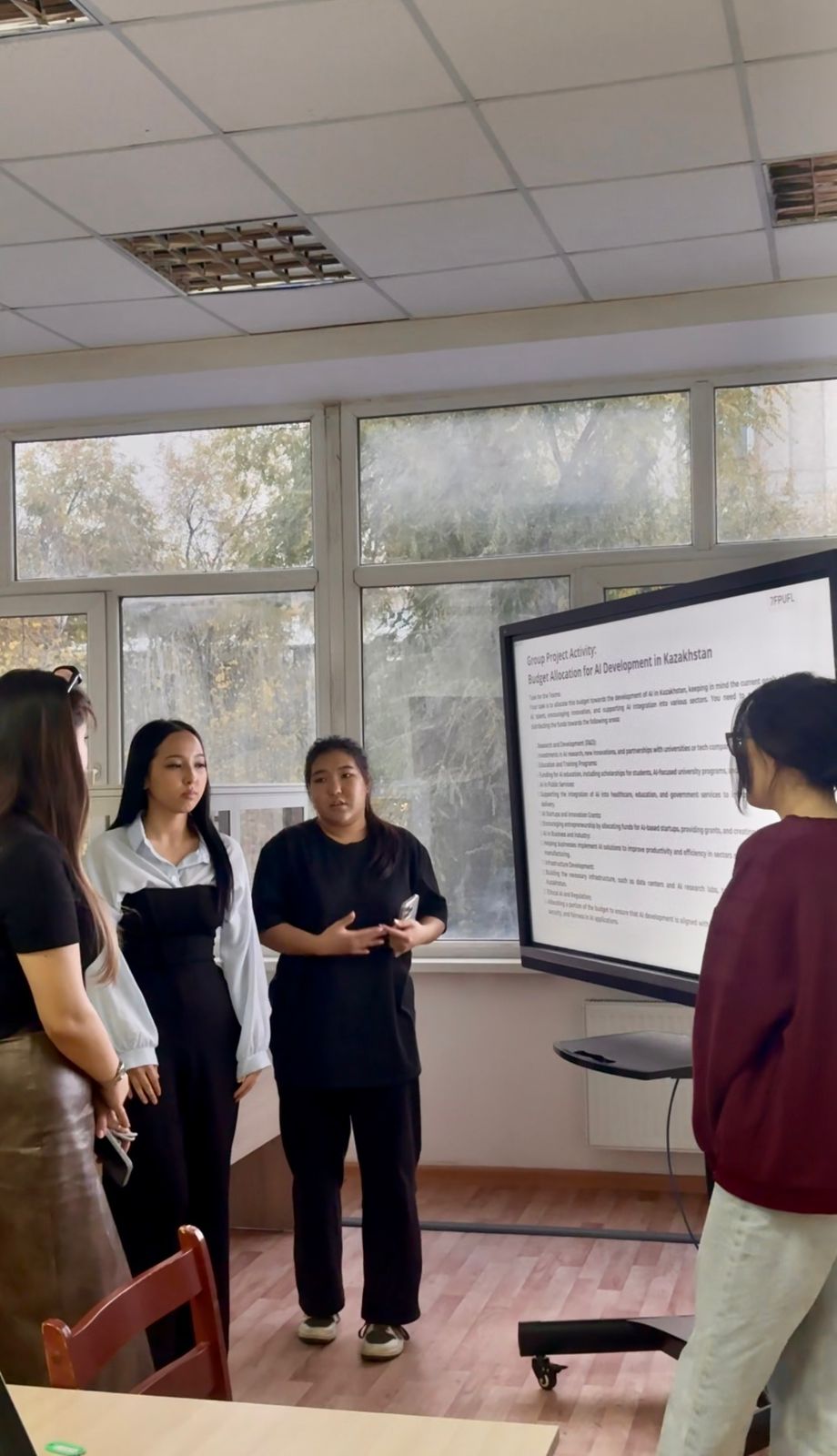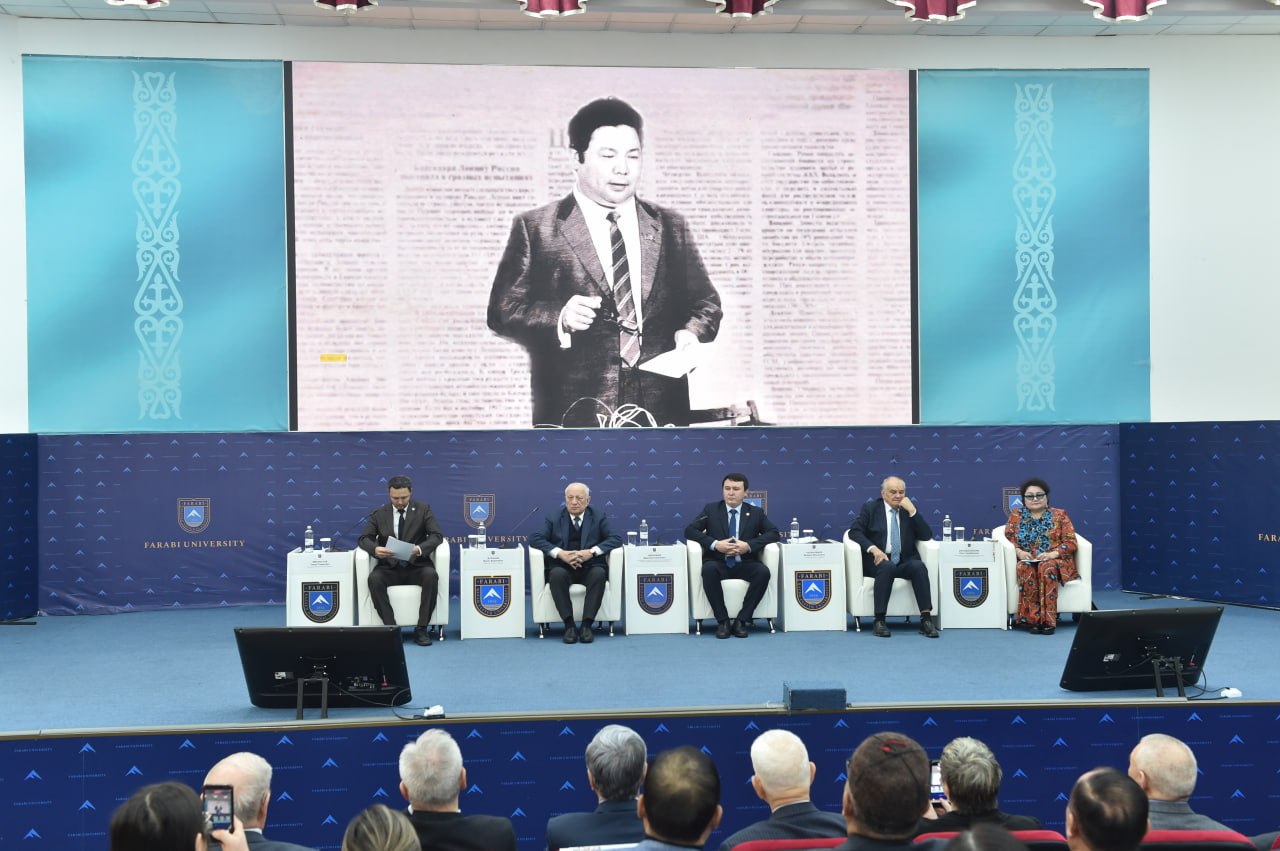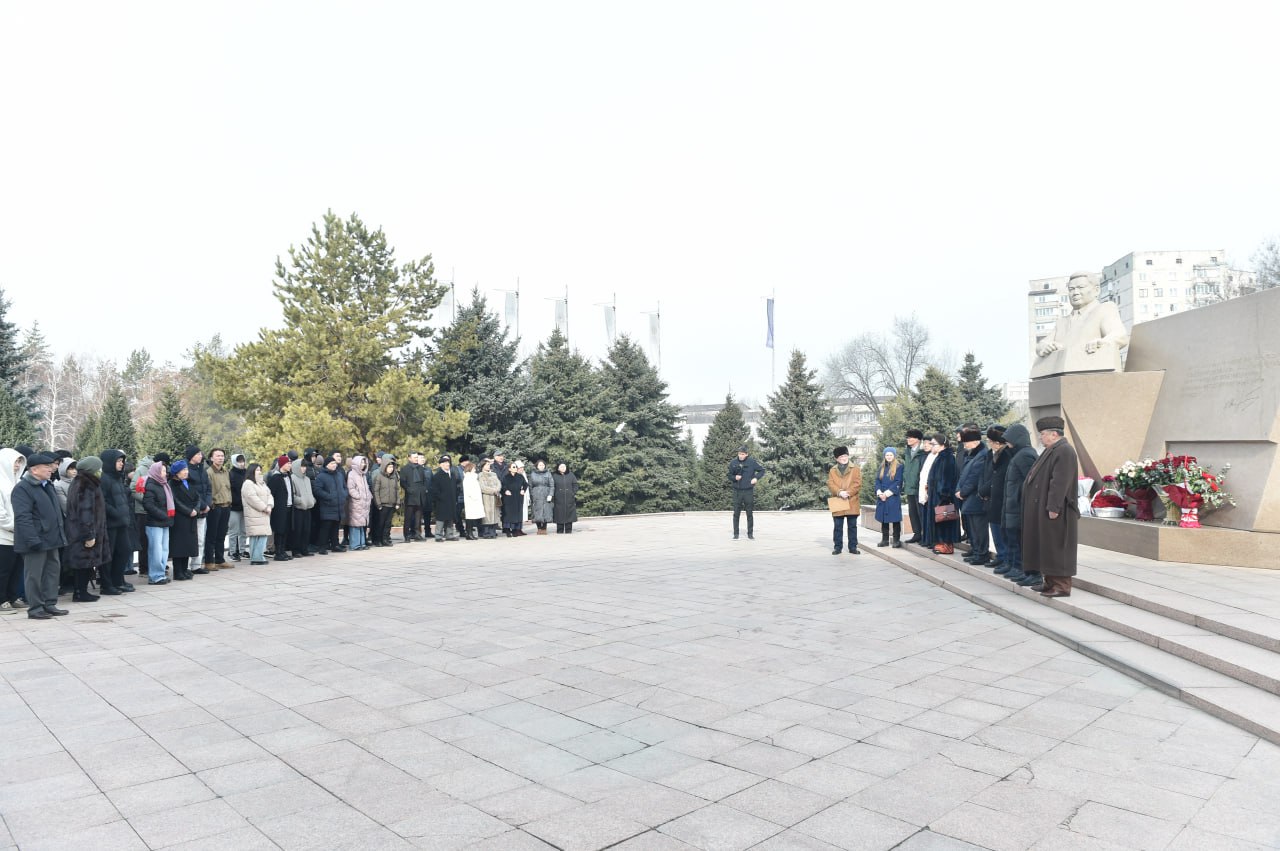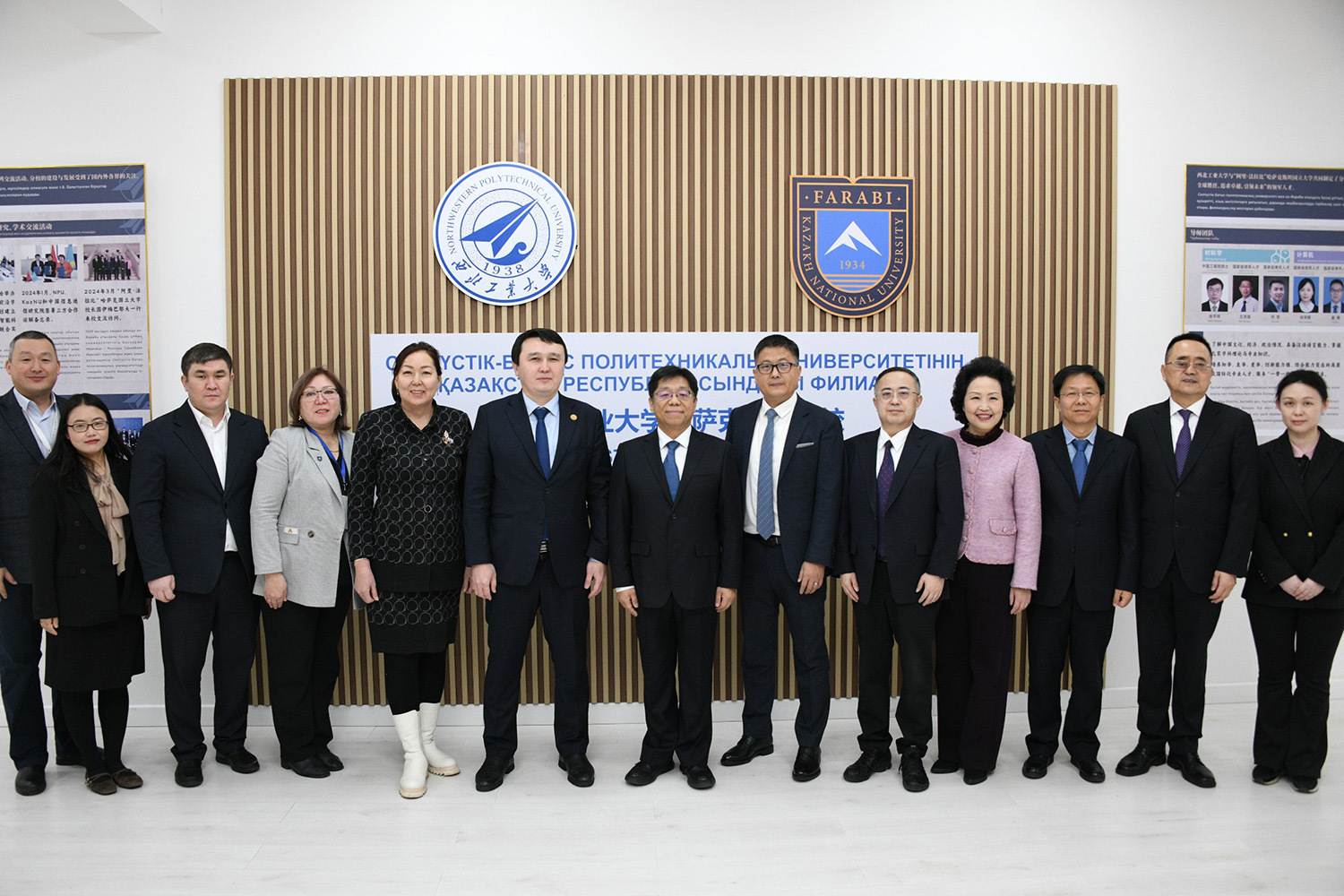- Main
- News
- The role and prospects of artificial intelligence in Kazakhstan's digitalization strategy: tasks, challenges and opportunities for young people
The role and prospects of artificial intelligence in Kazakhstan's digitalization strategy: tasks, challenges and opportunities for young people
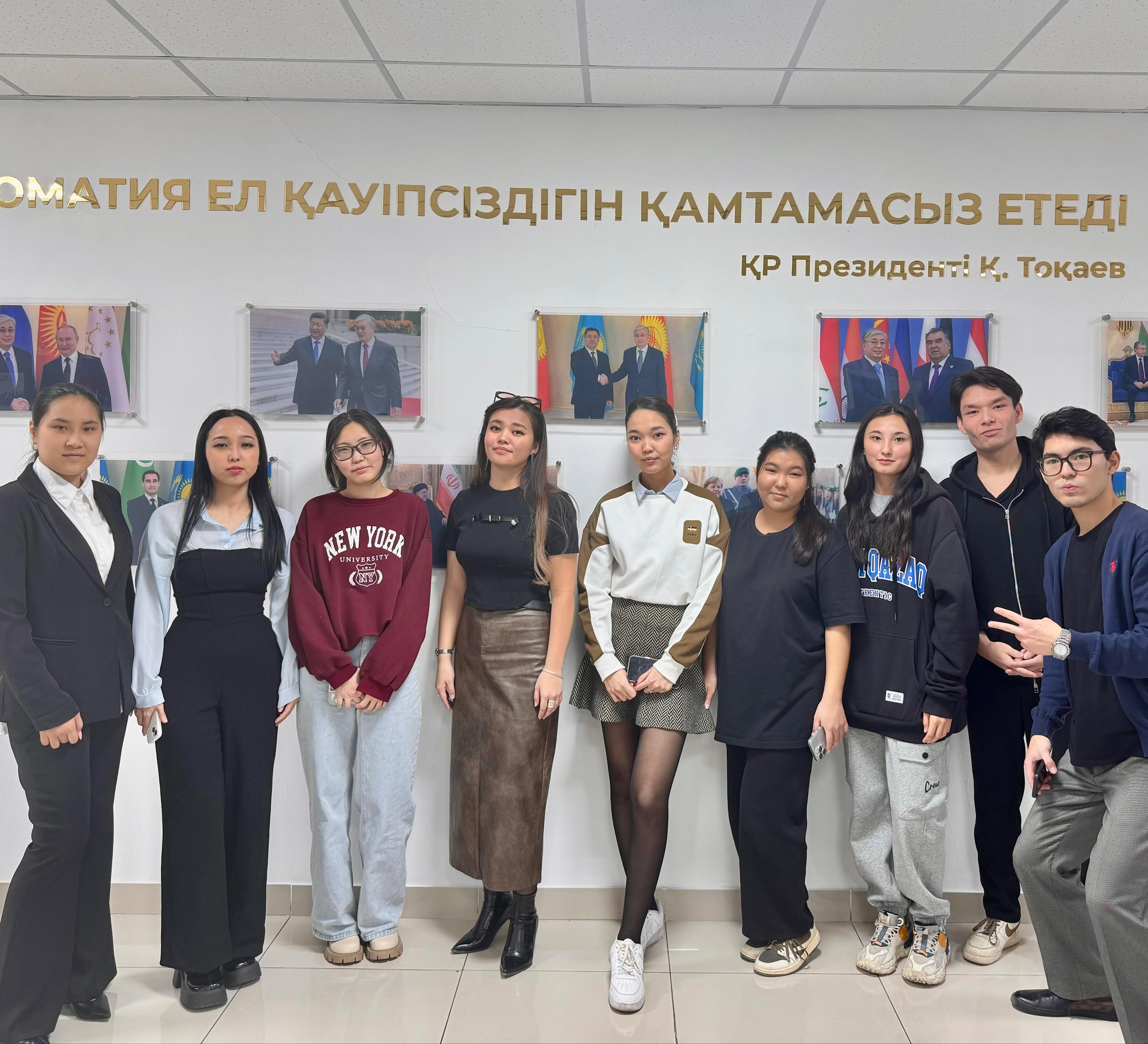
On October 24, a round table was held at the Faculty of International Relations of Al-Farabi Kazakh National University, organized by group advisor Naziya Muratbek, at the Department of Diplomatic Translation on the topic “Artificial Intelligence and Digitalization: Widespread Implementation as a Government Priority.” The event gathered first-year students specializing in “Translation in the Field of International and Legal Relations” for an in-depth discussion and analysis of the President’s address on the development of AI and digital technologies in Kazakhstan.
The discussion began with an introduction to the topic, where participants examined the strategic importance of artificial intelligence for Kazakhstan and plans for its active implementation across various sectors. It was emphasized that Kazakhstan aims to become a leader in Central Asia in the application of AI, as evidenced by the initiative to establish a National Center for Artificial Intelligence in Astana by 2025.
During the round table, students learned that the National AI Center will be a unique platform for learning and research, accessible to schoolchildren, students, researchers, and entrepreneurs. The center is intended to foster skill development in AI and digital technologies, providing access to advanced technology and knowledge.
Participants then discussed the prospects and challenges associated with AI implementation and considered how digitalization could impact various sectors, including education, healthcare, business, and public administration. Special attention was given to the role of translators in the digital age, where students explored AI’s impact on the translation profession, particularly the potential for automated translation and the new skill requirements for working with digital tools.
The round table concluded with a lively discussion, where students shared their views on the future of artificial intelligence in Kazakhstan and its potential integration into international and legal relations. The event allowed participants to gain a deeper understanding of Kazakhstan’s strategic goals in AI and digitalization and to consider the professional changes they are likely to encounter in the future..jpeg)
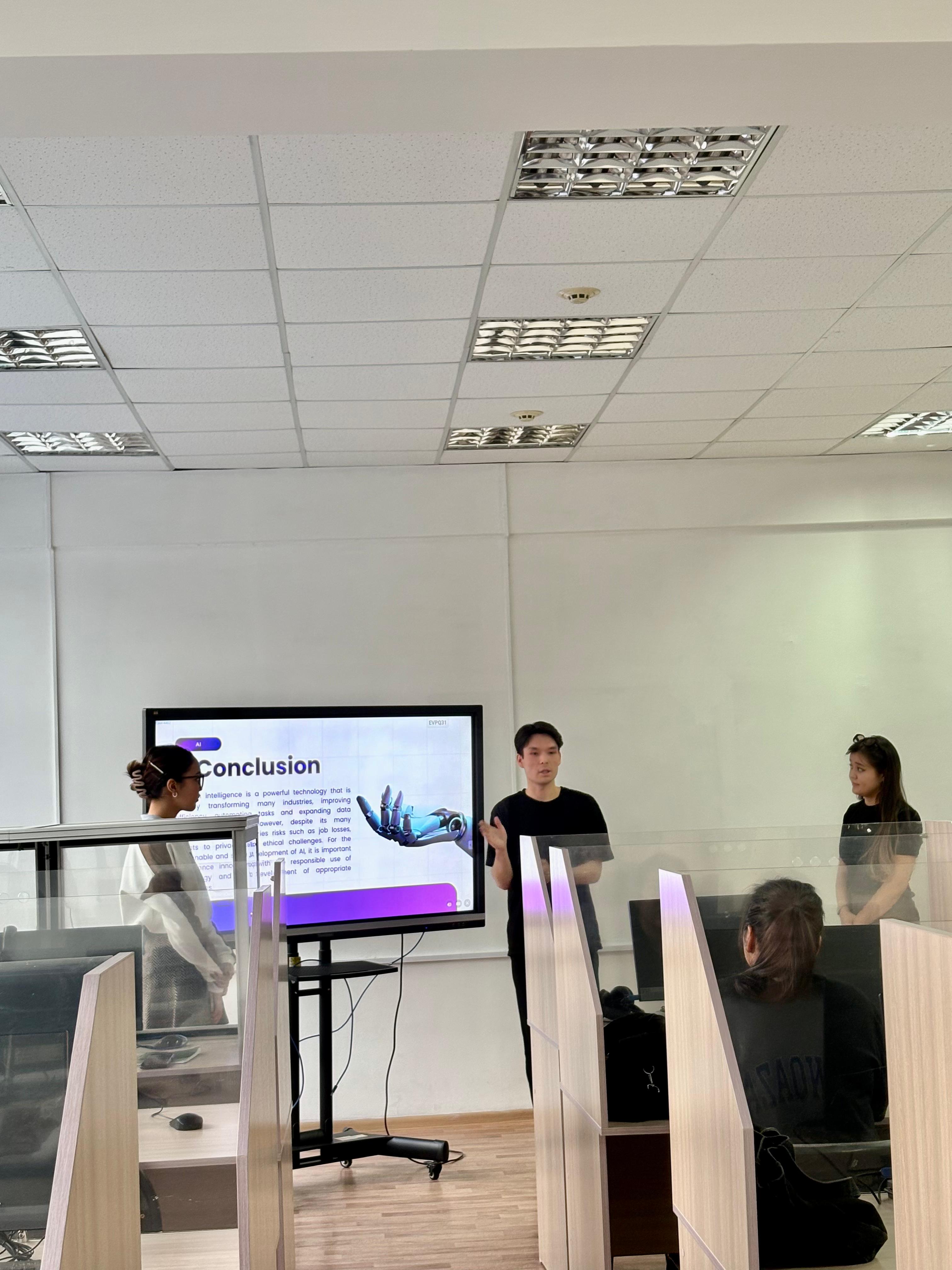
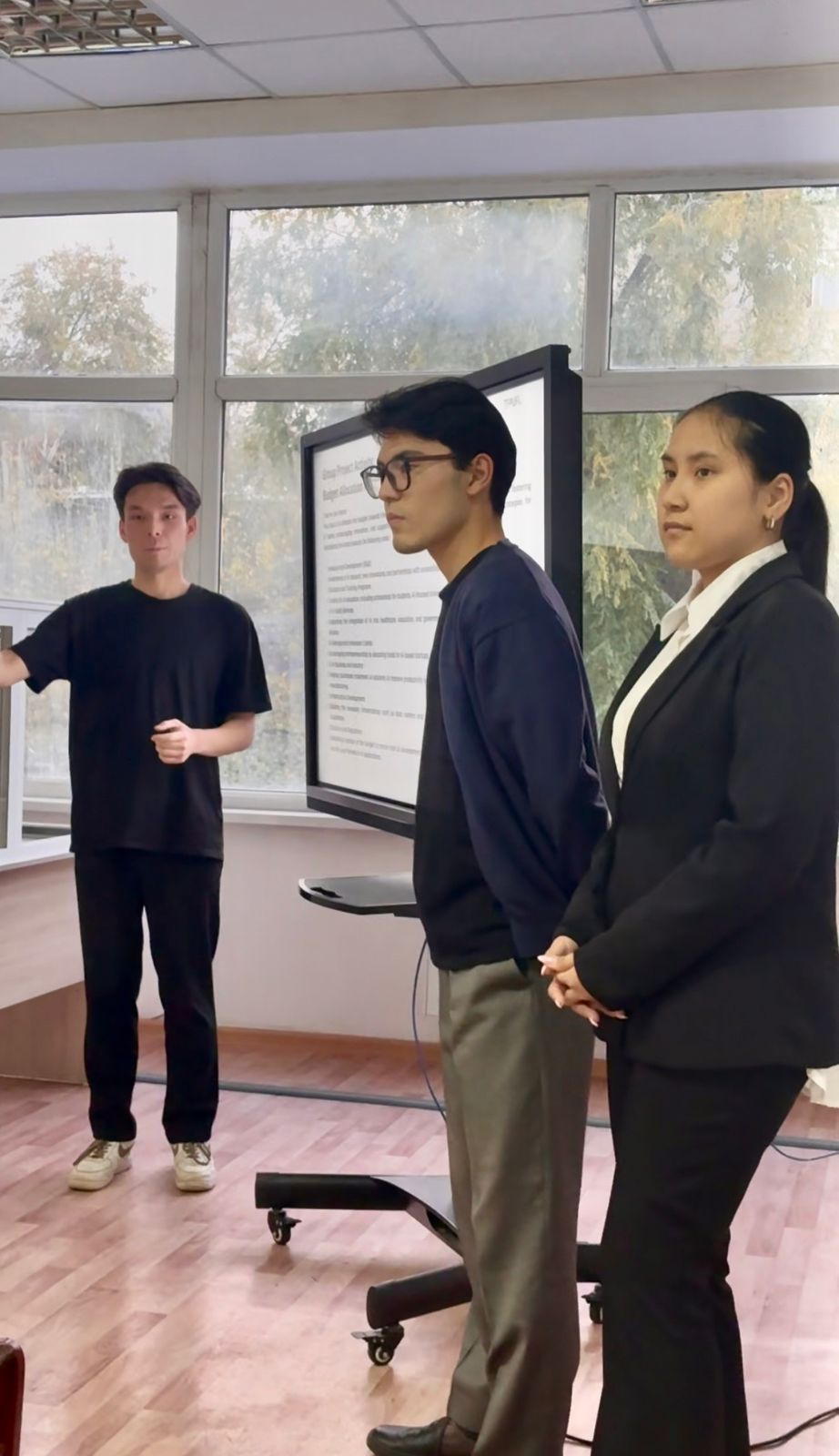
.jpeg)
